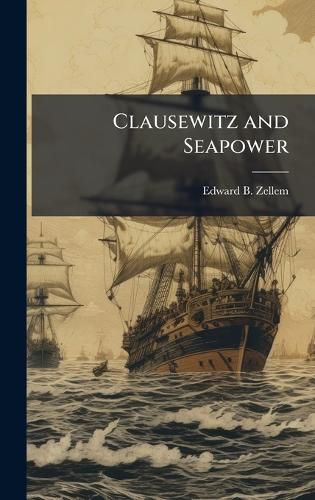Readings Newsletter
Become a Readings Member to make your shopping experience even easier.
Sign in or sign up for free!
You’re not far away from qualifying for FREE standard shipping within Australia
You’ve qualified for FREE standard shipping within Australia
The cart is loading…






This paper explores the hypothesis that although Clausewitz has been criticized for not specifically addressing naval warfare in his seminal work "On War," Clausewitzian principles are in fact not only applicable, but highly relevant to the modern conduct of war at sea. The 1982 Falkland Islands conflict between Great Britain and Argentina will be used as the framework to examine this hypothesis. As the largest and most significant series of naval engagements since World War II, the Falklands War provides a rich database of both traditional and nontraditional lessons learned about the conduct of war at sea. This paper begins with a brief discussion of critiques of Clausewitz and his apparent lack of focus on the naval element of warfare. It will be followed by a historical review of significant events leading up to, and during the Falkland Islands War. Key events in the war will then be reviewed and examined within a framework of Clausewitzian principles. The motives, key assumptions, military strategy, and tactics of Great Britain and Argentina will be discussed within the context of the Clausewitzian dictum that "war is the continuation of politics by other means." Selected specific events in the campaign will then be addressed in terms of Clausewitzian principles of war to determine their relevance or irrelevance to modern naval strategy and campaigning.
This work has been selected by scholars as being culturally important, and is part of the knowledge base of civilization as we know it. This work was reproduced from the original artifact, and remains as true to the original work as possible. Therefore, you will see the original copyright references, library stamps (as most of these works have been housed in our most important libraries around the world), and other notations in the work.
This work is in the public domain in the United States of America, and possibly other nations. Within the United States, you may freely copy and distribute this work, as no entity (individual or corporate) has a copyright on the body of the work.
As a reproduction of a historical artifact, this work may contain missing or blurred pages, poor pictures, errant marks, etc. Scholars believe, and we concur, that this work is important enough to be preserved, reproduced, and made generally available to the public. We appreciate your support of the preservation process, and thank you for being an important part of keeping this knowledge alive and relevant.
$9.00 standard shipping within Australia
FREE standard shipping within Australia for orders over $100.00
Express & International shipping calculated at checkout
This paper explores the hypothesis that although Clausewitz has been criticized for not specifically addressing naval warfare in his seminal work "On War," Clausewitzian principles are in fact not only applicable, but highly relevant to the modern conduct of war at sea. The 1982 Falkland Islands conflict between Great Britain and Argentina will be used as the framework to examine this hypothesis. As the largest and most significant series of naval engagements since World War II, the Falklands War provides a rich database of both traditional and nontraditional lessons learned about the conduct of war at sea. This paper begins with a brief discussion of critiques of Clausewitz and his apparent lack of focus on the naval element of warfare. It will be followed by a historical review of significant events leading up to, and during the Falkland Islands War. Key events in the war will then be reviewed and examined within a framework of Clausewitzian principles. The motives, key assumptions, military strategy, and tactics of Great Britain and Argentina will be discussed within the context of the Clausewitzian dictum that "war is the continuation of politics by other means." Selected specific events in the campaign will then be addressed in terms of Clausewitzian principles of war to determine their relevance or irrelevance to modern naval strategy and campaigning.
This work has been selected by scholars as being culturally important, and is part of the knowledge base of civilization as we know it. This work was reproduced from the original artifact, and remains as true to the original work as possible. Therefore, you will see the original copyright references, library stamps (as most of these works have been housed in our most important libraries around the world), and other notations in the work.
This work is in the public domain in the United States of America, and possibly other nations. Within the United States, you may freely copy and distribute this work, as no entity (individual or corporate) has a copyright on the body of the work.
As a reproduction of a historical artifact, this work may contain missing or blurred pages, poor pictures, errant marks, etc. Scholars believe, and we concur, that this work is important enough to be preserved, reproduced, and made generally available to the public. We appreciate your support of the preservation process, and thank you for being an important part of keeping this knowledge alive and relevant.